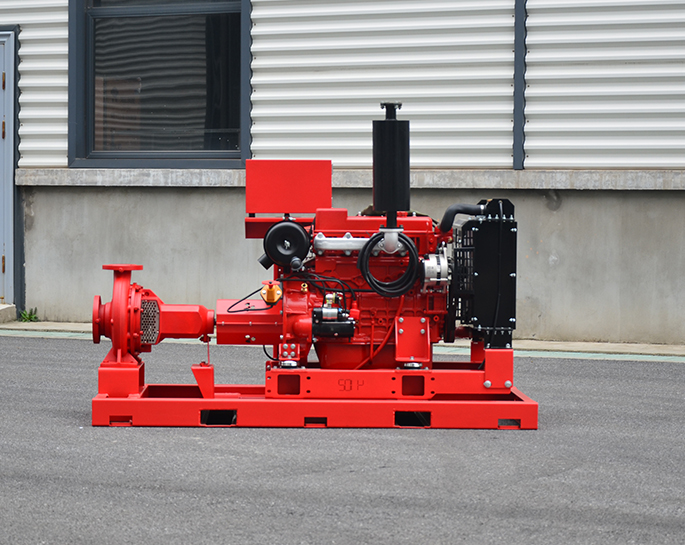How do diesel fire pumps contribute to the overall fire protection strategy for different types of buildings and facilities?
Mar 19, 2024
Share:
Diesel fire pumps play a crucial role in fire protection strategies for various types of buildings and facilities by providing a reliable source of water supply for firefighting operations. Here's how they contribute:
1. **Backup Power**: Diesel fire pumps serve as a backup power source in case of electrical power failure, ensuring continuous water supply to fire suppression systems even during emergencies or natural disasters. This reliability is particularly crucial for critical facilities such as hospitals, data centers, and industrial plants where uninterrupted operations are vital.
2. **High Flow Rates**: Diesel fire pumps are capable of delivering high flow rates of water, which is essential for effectively combating large fires in buildings with complex layouts or high fire risks. These pumps can provide the necessary pressure and volume of water to quickly contain and extinguish fires before they spread and cause extensive damage.
3. **Remote or Rural Locations**: In remote or rural areas where access to municipal water supply may be limited or unreliable, diesel fire pumps provide an independent water source for fire protection. This is especially important for facilities such as farms, warehouses, or manufacturing plants located far from urban centers.
4. **Compliance with Regulatory Requirements**: Many building codes and regulations require the installation of backup fire pumps to ensure adequate fire protection measures. Diesel fire pumps help buildings and facilities comply with these requirements by providing a reliable alternative to electrically powered pumps.
5. **Redundancy**: Diesel fire pumps add redundancy to fire protection systems, reducing the risk of system failure due to equipment malfunction or maintenance issues. Having multiple layers of protection ensures that there is always a backup plan in place to address fire emergencies effectively.
6. **Customization and Flexibility**: Diesel fire pumps can be customized to meet the specific needs and requirements of different buildings and facilities. They can be installed as standalone units or integrated into complex fire protection systems, offering flexibility in design and implementation.
Overall, diesel fire pumps enhance the overall fire protection strategy for buildings and facilities by providing a reliable, high-capacity water supply that can withstand various operational challenges and ensure effective firefighting capabilities during emergencies.

1. **Backup Power**: Diesel fire pumps serve as a backup power source in case of electrical power failure, ensuring continuous water supply to fire suppression systems even during emergencies or natural disasters. This reliability is particularly crucial for critical facilities such as hospitals, data centers, and industrial plants where uninterrupted operations are vital.
2. **High Flow Rates**: Diesel fire pumps are capable of delivering high flow rates of water, which is essential for effectively combating large fires in buildings with complex layouts or high fire risks. These pumps can provide the necessary pressure and volume of water to quickly contain and extinguish fires before they spread and cause extensive damage.
3. **Remote or Rural Locations**: In remote or rural areas where access to municipal water supply may be limited or unreliable, diesel fire pumps provide an independent water source for fire protection. This is especially important for facilities such as farms, warehouses, or manufacturing plants located far from urban centers.
4. **Compliance with Regulatory Requirements**: Many building codes and regulations require the installation of backup fire pumps to ensure adequate fire protection measures. Diesel fire pumps help buildings and facilities comply with these requirements by providing a reliable alternative to electrically powered pumps.
5. **Redundancy**: Diesel fire pumps add redundancy to fire protection systems, reducing the risk of system failure due to equipment malfunction or maintenance issues. Having multiple layers of protection ensures that there is always a backup plan in place to address fire emergencies effectively.
6. **Customization and Flexibility**: Diesel fire pumps can be customized to meet the specific needs and requirements of different buildings and facilities. They can be installed as standalone units or integrated into complex fire protection systems, offering flexibility in design and implementation.
Overall, diesel fire pumps enhance the overall fire protection strategy for buildings and facilities by providing a reliable, high-capacity water supply that can withstand various operational challenges and ensure effective firefighting capabilities during emergencies.


.png)
.png)

.png)


